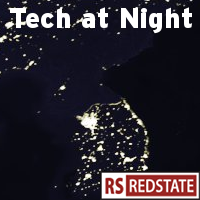
The House is doing anything but shirking its responsibility to apply oversight to the Obama administration. The FCC in particular is getting the attention it needs. “Regulatory hubris” in picking winners and losers is part of the problem, says Commissioner Robert McDowell. He should know, as he’s on the inside.
Darrell Issa and Chuck Grassley disagree on the FCC’s transparency though. Issa gives them a good grade, oddly enough, even as they continue to stonewall Grassley.
And so it’s good that Jo Ann Emerson questions the FCC’s hypocritical and questionable demand for senseless record keeping in others.
Though it’d be nice if somebody asked “Senator” Wendy’s questions about Free Press, in relation to the FCC.
Continue reading »

Hello everyone! I hope people have plants to get out to Charleston this weekend for the third annual Gathering. I will be there, which is why there will be no Tech at Night on Friday.
Having also missed Monday due to Gathering preparations, I have much to cover tonight. I’ll start with a wrap up of everyone’s favorite online terrorist group, Anonymous. I don’t use that term lightly, terrorist. But any group that conspires to put law enforcement lives on the line to push an “activist” agenda is a terrorist group.
Again we find Anonymous’s own insecurity as Syria slammed AnonPlus. That of course does not bode well for Anonymous’s protecting itself from further legal action. Which is not good for when they announce plans to hit Facebook. FrogMarch!
Continue reading »

Good evening. It’s going to be short tonight, because I don’t actually have anything new to say about G—– or F— P—- tonight, as against freedom as they both are.
But I will say this about Net Neutrality: competition from new technology is the way out of any problems we have with the ISP monopolies and duopolies that state and local regulators cram down our throats. It’s not theoretical, either: Sprint is deploying 4G WiMAX service over more and more of the country.
Technology, not Net Neutrality regulation, is what we need.
Continue reading »

I hide nothing from you: I kicked back this Friday night. I slacked off. Now it’s Saturday at 2am and I’m finally getting to this. But, you all read this in the morning anyway so it really doesn’t matter much, right? (If I’m wrong I’ll surely hear in the comments)
Let’s start with a widely reported but badly reported story: DNSSEC. This is a framework for the Domain Name System (the framework for translating from hostnames such as www.redstate.com to IP addresses, which are the actual addresses used on the Internet). The system is akin to SSL for domains. Verisign will manage it for the Commerce Department and create a single “Root Key” which is then used to create certificates for domains, which will then be used to make sure your a domain’s DNS records are legitimate.
In my estimation, it’s just a big boondoggle for [Verisign] to get more customers. The vast majority of domains won’t be able to be secured by it, because Verisign is going to have a monopoly and will charge accordingly. This will only affect big businesses transacting large amounts of money, and they’re already secured against DNS-based attacks. If they’re smart they are, anyway.
What DNSSEC does that is bad, however, is create a new point of failure for the Internet, because there are 7 key holders which control escrowed access to the root key. If 3 of them lose the keys, the entire system will have to be re-keyed at expense and inconvenience to all, as pointed out by George Ou.
Continue reading »

Good evening. Sure, it’s technically morning, but when I went to post tonight I realized I had nothing queued up to write about, so I had to make a crash run through my news feeds before I could get started.
But get started we shall tonight with Apple and the Library of Congress. The Library of Congress is apparently entrusted with setting rules for what forms of reverse engineering are allowed under the Digital Millennium Copyright Act, a landmark bill which included (over)broad restrictions on software. In short, the DMCA pretty much bans reverse engineering or circumvention of software or hardware that enforces copyright. Exceptions are given though, and the Library of Congress has announced some more exceptions.
One of them is a doozy: Both major forms of Apple iPhone “jailbreaking” are now expressly legal in this country. It is allowed to circumvent Apple’s restrictions to install legitimate software otherwise inaccessible through the App Store. It is also allowed to buy a used iPhone and circumvent the AT&T carrier restriction in it.
In practice this might not mean much, as jailbreaking activity was already strong due to clear legality in other countries from the start. That fact forced Apple to fight jailbreaking technologically, rather than legally. But now the full might of American engineering may be brought to bear on iPhone jailbreaking, and Apple might have a tougher time going forward.
Continue reading »